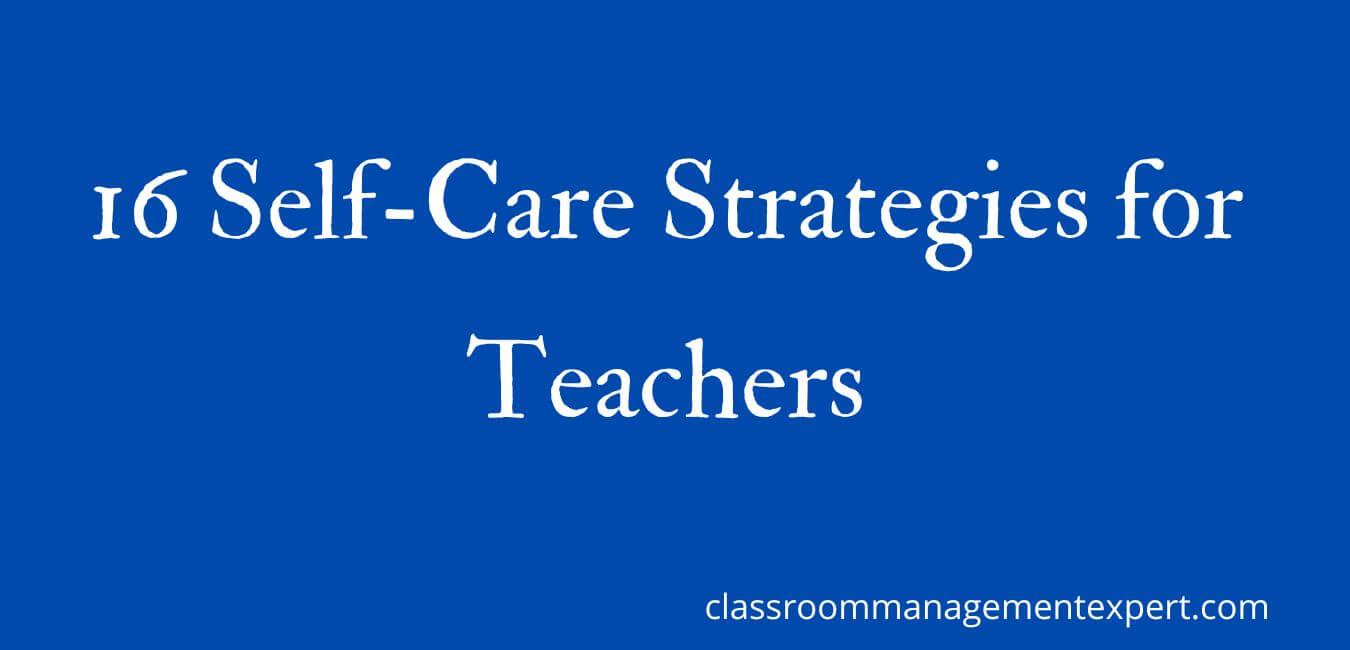
Stepping into the world of teaching for the first time can feel overwhelming. In fact, mentors play a crucial role in guiding new teachers toward success. This article presents nine compelling reasons why newbie educators need mentoring, offers strategies to effectively mentor them, and highlights nine important factors mentors should consider when guiding beginning educators.
Let’s plunge into this insightful guide that promises to help transform beginners into confident and effective educators!
Key Takeaways
- New teachers benefit from mentoring because it provides them with valuable support, guidance, and advice as they navigate the challenges of teaching.
- Mentoring helps new teachers with their professional development by offering tailored support, resources, and opportunities for networking.
- Effective strategies for mentoring new teachers include regular check-ins and meetings, providing resources and materials, offering classroom observation and feedback, encouraging collaboration and networking, and promoting self-reflection and goal-setting.
- Important factors to consider when mentoring new teachers include individual needs and learning styles, classroom management strategies, and differentiated instruction techniques.
Why New Teachers Need Mentoring
New teachers need mentoring because it provides them with valuable support and guidance as they navigate the challenges of teaching, assists them with their professional development, and helps them grow into effective educators.
Provides support and guidance
Mentors give new teachers help and advice. They show them how to do well in their job. Like a friend, they offer tips on teaching kids. They also talk about ways to keep the class under control.
Mentors are not people who judge or tell off new teachers. Instead, they share ideas that can make teaching better and easier!
Helps navigate the challenges of teaching
New teachers often face many challenges when they start their teaching careers. That’s where mentoring can be really helpful. Mentoring provides valuable support and guidance to new teachers as they navigate the demands of teaching.
Mentors can offer advice and strategies for managing classroom behavior, helping students with different learning needs, and creating engaging lessons. They can also share their own experiences and provide encouragement during difficult times.
With a mentor by their side, new teachers have someone who understands what they’re going through and can help them overcome obstacles along the way.
Assists with professional development
Mentoring plays a crucial role in the professional development of new teachers. By working closely with experienced mentors, new teachers can gain valuable knowledge and skills that will enhance their teaching practices.
Mentors can provide guidance on curriculum decisions, offer strategies for effective lesson planning, and help analyze student work to improve instruction. With the support of a mentor, new teachers can reflect on their teaching methods and set goals for growth.
Through ongoing coaching and feedback, mentors assist new teachers in developing their unique teaching style and becoming more confident educators.
Mentoring also offers opportunities for professional networking. New teachers can learn from seasoned educators who have years of experience in the field. They can participate in collaborative activities with other mentees to share ideas, resources, and best practices.
This supportive network allows new teachers to expand their knowledge base and build relationships within the education community.
Ideas for Mentoring New Teachers
Establish regular check-ins and meetings to provide ongoing support and guidance for new teachers.
Establish regular check-ins and meetings
New teachers benefit from regular check-ins and meetings with their mentors. It provides them with consistent support and guidance throughout their teaching journey. Here are some important points to consider:
- Schedule regular check-in meetings to discuss progress and challenges.
- Use these meetings as opportunities for new teachers to ask questions and seek advice.
- Collaborate on creating strategies and solutions for any difficulties faced in the classroom.
- Share resources, lesson plans, and teaching materials to support their professional development.
- Provide constructive feedback on lessons and student work, highlighting areas of improvement.
- Use these meetings to set goals and track progress towards achieving them.
- Encourage open communication and create a safe space for new teachers to share their concerns or successes.
Provide resources and materials
New teachers need access to a wide range of resources and materials to help them effectively plan and deliver their lessons. Here are some ways mentors can provide support in this area:
- Share lesson plans and teaching materials that have been successful in the past.
- Provide access to educational websites, online databases, and professional journals for research and inspiration.
- Offer guidance on selecting appropriate textbooks, workbooks, and other instructional materials.
- Recommend books, articles, and videos that can enhance their knowledge of teaching strategies.
- Share classroom management tools and techniques that have proven effective.
- Provide samples of student work to serve as examples for new teachers to reference.
- Offer suggestions for incorporating technology into the classroom to enhance learning.
- Help new teachers locate and utilize community resources that align with curriculum goals.
- Encourage collaboration with other educators to share resources and ideas.
Offer classroom observation and feedback
Observing the new teacher’s classroom and providing feedback is an important part of mentoring. Here are some ways mentors can offer observation and feedback:
- Observe the new teacher during class to see how they interact with students and manage the classroom.
- Give constructive feedback on areas where the new teacher can improve, such as lesson planning or student engagement.
- Offer suggestions for different teaching strategies or approaches that the new teacher can try.
- Discuss with the new teacher their strengths and areas for growth based on the observations.
- Collaborate with the new teacher to set goals for improvement and provide ongoing support.
Encourage collaboration and networking
Collaboration and networking are essential for the growth and development of new teachers. Here are some ways to encourage collaboration and networking:
- Facilitate group discussions and team-building activities where teachers can share their experiences, ideas, and challenges.
- Encourage new teachers to attend professional development workshops or conferences where they can network with experienced educators.
- Create opportunities for new teachers to collaborate with colleagues, such as co-planning lessons or working on projects together.
- Provide a platform for new teachers to join online communities or forums where they can connect with educators from around the world.
- Organize mentorship programs or buddy systems where new teachers are paired with experienced educators who can offer guidance and support.
- Foster a culture of collaboration within the school by promoting open communication and teamwork among all staff members.
- Encourage new teachers to participate in collaborative teaching practices, such as co-teaching or team-teaching, to learn from their peers.
- Use technology tools, such as video conferencing or online collaboration platforms, to facilitate virtual collaborations between new teachers.
Promote self-reflection and goal-setting
Promote self-reflection and goal-setting by encouraging new teachers to:
- Reflect on their teaching experiences and identify areas for improvement.
- Set specific goals for their professional growth, such as improving classroom management or implementing differentiated instruction techniques.
- Regularly assess their progress towards these goals and make adjustments as needed.
- Seek feedback from mentors and colleagues to gain different perspectives and insights.
- Engage in ongoing professional development opportunities that align with their goals.
- Utilize resources and strategies to support self-reflection, such as journaling or peer observations.
- Celebrate achievements and milestones along the way to stay motivated and focused on their goals.
Factors to Consider When Mentoring New Teachers
When mentoring new teachers, it is essential to consider factors such as individual needs and learning styles, classroom management strategies, differentiated instruction techniques, assessment and data analysis skills, cultural competence and inclusion, as well as professional ethics and boundaries.
Individual needs and learning styles
Mentoring new teachers involves considering their individual needs and learning styles. Each teacher has unique strengths, weaknesses, preferences, and ways of processing information.
Mentors should take the time to understand these differences and tailor their support accordingly. By recognizing and accommodating diverse learning styles, mentors can help new teachers feel more comfortable and engaged in their professional development.
This may involve providing resources in different formats or offering alternative strategies for instructional delivery. Taking into account individual needs and learning styles is crucial for creating a supportive mentoring relationship that promotes growth and success for new teachers.
Classroom management strategies
Teachers can benefit from implementing effective classroom management strategies to create a positive learning environment and maintain student engagement. By establishing clear expectations, routines, and procedures, teachers can establish order in the classroom and minimize disruptions.
Teachers should also use proactive strategies like praising good behavior and providing incentives to motivate students. Additionally, having a well-structured lesson plan with engaging activities helps keep students focused and on-task.
It is important for teachers to build relationships with their students based on trust and respect to promote a cooperative classroom atmosphere where everyone feels valued. Through consistent implementation of these strategies, teachers can create a supportive environment that fosters student success.
Differentiated instruction techniques
Differentiated instruction is an important technique for mentoring new teachers. It involves tailoring teaching strategies to meet the diverse learning needs of students in the classroom.
By using differentiated instruction techniques, mentors can help new teachers create lessons that address the individual strengths and challenges of their students. This can include offering different activities or materials based on students’ abilities, interests, and learning styles.
Differentiated instruction helps new teachers provide a more inclusive and engaging learning environment where all students have the opportunity to succeed. Mentors should guide new teachers in implementing these techniques and support them in analyzing student data to inform instructional decisions.
Assessment and data analysis skills
Assessment and data analysis skills are crucial for new teachers. These skills help educators understand how well their students are learning and make informed decisions about their instruction.
By analyzing student work and test results, teachers can identify areas where students may need extra support or enrichment. Collecting and interpreting data also allows teachers to measure the effectiveness of their teaching strategies and adjust them as needed.
With strong assessment and data analysis skills, new teachers can track student progress, personalize instruction, and ensure that all students are reaching their full potential in the classroom.
Mentoring programs that focus on developing assessment and data analysis skills can greatly benefit new teachers. Mentors can provide guidance on how to design assessments that align with learning goals, create rubrics for grading student work, and use technology tools for data collection and analysis.
Cultural competence and inclusion
Cultural competence and inclusion are important factors to consider when mentoring new teachers. It’s essential for educators to understand and respect the diverse backgrounds of their students.
Mentors can help new teachers develop strategies for creating inclusive classrooms where all students feel valued and supported. This includes being aware of cultural differences, implementing culturally responsive teaching practices, and promoting a sense of belonging for every student.
By fostering cultural competence and inclusion, mentors can help new teachers create an environment that celebrates diversity and promotes equitable learning opportunities for all students.
Professional ethics and boundaries
Mentoring new teachers also involves teaching them about professional ethics and boundaries. This means helping them understand the importance of maintaining confidentiality, respecting student privacy, and conducting themselves in a professional manner at all times.
Mentors can provide guidance on appropriate interactions with students, colleagues, and parents, as well as ethical dilemmas that may arise in the classroom. By instilling these values early on, mentors help new teachers build a strong foundation for their careers and ensure they are providing a safe and respectful learning environment for their students.
The Benefits of Mentorship for New Teachers
Mentorship for new teachers has numerous benefits. It increases confidence and job satisfaction, improves teaching skills and effectiveness, develops a supportive professional network, and helps retain new teachers in the field.
Read more to discover why mentoring is crucial for the success of new educators.
Increased confidence and job satisfaction
New teachers who have mentors often experience increased confidence and job satisfaction. Having a mentor provides them with the support and guidance they need to navigate the challenges of teaching.
Mentors can offer advice, share their own experiences, and help new teachers reflect on their practice. This support helps new teachers feel more confident in their abilities, which in turn leads to greater job satisfaction.
When new teachers know they have someone they can turn to for help and guidance, it boosts their confidence and overall enjoyment of their profession.
Furthermore, mentoring also contributes to professional growth and development, which enhances job satisfaction. New teachers can learn from experienced educators through observation, feedback, and collaboration.
They can receive valuable insights into effective teaching strategies and instructional techniques that improve student outcomes. By continuously learning from mentors’ expertise and incorporating these strategies into their practice, new teachers see positive results in their classrooms.
This success brings them a sense of fulfillment and job satisfaction knowing that they are making a difference in students’ lives.
Improved teaching skills and effectiveness
One of the main benefits of mentorship for new teachers is the improvement of their teaching skills and effectiveness. Through regular check-ins and feedback from their mentors, new teachers can receive guidance on various aspects of teaching.
This includes developing effective lesson plans, implementing differentiated instruction techniques, analyzing assessment data, and managing a classroom effectively. By working closely with experienced mentors, new teachers can learn valuable strategies and approaches that enhance their ability to meet the needs of all students in an inclusive way.
These mentorship experiences help build confidence in new teachers and contribute to their overall growth as educators.
Additionally, by being part of a mentorship program, new teachers have the opportunity to reflect on their own teaching practices and set professional goals for themselves. Mentors provide support in this process by helping new teachers identify areas for improvement and develop action plans to address those areas.
The ongoing feedback and collaboration between mentors and mentees lead to continuous growth as educators.
Development of a supportive professional network
New teachers can greatly benefit from the development of a supportive professional network. By connecting with other educators, they can find a sense of community and gain valuable insights and advice.
Building relationships with more experienced teachers allows new teachers to tap into their knowledge and expertise, helping them navigate challenges and build their teaching skills.
A supportive professional network also provides opportunities for collaboration and sharing of resources. New teachers can learn from the experiences of others, exchange ideas, and discover effective strategies that have been successfully implemented in classrooms.
This collaborative environment fosters growth and encourages innovation in teaching practices.
Furthermore, being part of a professional network can offer emotional support and motivation. New teachers may face various difficulties or setbacks along their journey, but having a support system allows them to share their concerns or celebrate their successes with individuals who understand what they are going through.
Retention of new teachers in the field
New teachers often face challenges and struggles as they start their careers. Many new educators leave the teaching profession within the first few years due to these difficulties.
This high turnover rate can have a negative impact on schools and students. However, mentoring programs for new teachers can help increase retention in the field. By providing support, guidance, and professional development opportunities, mentors can help new teachers overcome obstacles and develop confidence in their abilities.
Mentoring programs also create a sense of belonging and support for new teachers, which contributes to job satisfaction and encourages them to stay in the field of education.
FAQs
1. What are some reasons new teachers need mentoring?
New teachers need mentoring for many reasons like guidance, coaching, gaining confidence, and overcoming teaching challenges.
2. Can you give ideas for mentoring new teachers?
Ideas for mentoring may include creating a positive learning environment, promoting professional growth, and assisting with training strategies to support beginning educators.
3. How important is mentoring in teacher development?
Mentoring plays an essential role in teacher development by enhancing effectiveness, building self-esteem, and supporting the growth of early career educators.
4. What factors should I consider when mentoring new teachers?
When mentoring new teachers, consider their needs, the importance of a strong mentor relationship, and how to overcome obstacles they face in teaching.
5. Does my school need a mentorship program for new teachers?
Yes! Programs for mentorship in schools provide benefits such as assistance to inexperienced educators and aid them in developing into successful professionals.
Conclusion
Mentoring is crucial for new teachers. It provides the support and guidance they need to navigate the challenges of teaching and developing professionally. With the ideas and factors to consider, mentors can help new teachers succeed in their classrooms and make a positive impact on their students’ education.
So let’s continue to prioritize mentorship programs in schools, ensuring that every new teacher receives the necessary support to thrive in their profession.


















